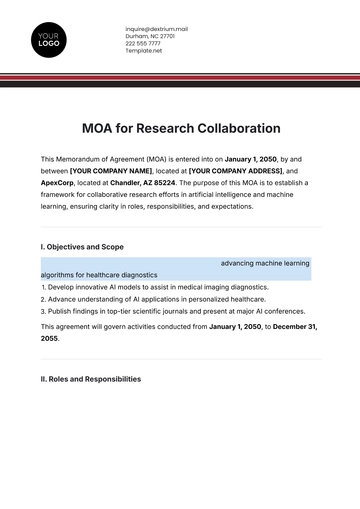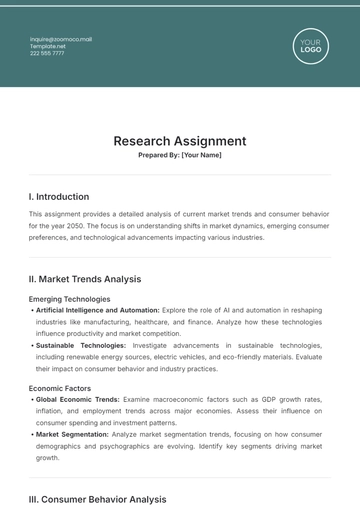Free Medical Research

[YOUR COMPANY NAME] | [YOUR COMPANY ADDRESS]
I. Introduction
In recent years, the role of nutritional intervention in managing Type 2 Diabetes has become a critical area of medical research. This research paper aims to explore the effectiveness of various diets and their components in controlling blood sugar levels, enhancing patient well-being, and potentially reducing dependency on medication.
The rising prevalence of Type 2 Diabetes globally necessitates an examination of non-pharmaceutical methods to manage this chronic condition. This paper employs a multidisciplinary approach, integrating findings from numerous scientific studies to outline dietary strategies that could be adopted by patients and healthcare providers.
II. Literature Review
A. Prevalence of Type 2 Diabetes
Type 2 Diabetes affects millions worldwide, with incidence rates climbing annually. The disease not only diminishes the quality of life but also imposes substantial economic burdens on healthcare systems. Lifestyle modifications, including dietary changes, have shown promise in the management and prevention of this disease.
B. Dietary Interventions in Diabetes Management
Research has consistently highlighted the significance of dietary interventions in managing Type 2 Diabetes. Studies indicate that specific diets can profoundly influence glycemic control, lipid profiles, and insulin sensitivity.
III. Methodology
A. Data Sources
The research involved a systematic review of peer-reviewed articles, medical databases, and existing meta-analyses. Publications from the last ten years were prioritized to ensure the incorporation of the latest research findings.
B. Selection Criteria
Studies included in this review were selected based on their relevance to nutritional interventions in Type 2 Diabetes, methodological soundness, and the statistical significance of their findings. Both randomized controlled trials and observational studies were considered.
IV. Results
Detailed analysis underscores the potency of dietary management in Type 2 Diabetes. Multiple dietary patterns and constituents were identified as particularly beneficial.
The table below summarizes key findings from the reviewed studies, illustrating the effect of different dietary components on diabetes management:
Dietary Component | Effect on Blood Sugar Levels | Effect on Lipid Profile |
|---|---|---|
Low-Carb Diet | Significant reduction | Improvement |
High-Fiber Diet | Moderate reduction | Significant improvement |
Plant-based Diet | Moderate reduction | Improvement |
Mediterranean Diet | Significant reduction | Significant improvement |
Ketogenic Diet | Significant reduction | Mixed results |
V. Discussion
The findings suggest that tailored dietary interventions can serve as a cornerstone in managing Type 2 Diabetes effectively. While all diets listed showed benefits, the choice of diet may depend on individual health profiles and preferences. Comprehensive dietary planning should thus consider patient-specific factors including age, co-existing health complications, and lifestyle.
Further research is needed to explore the long-term sustainability of these dietary interventions and their real-world application on a broader scale.
VI. Conclusion
This research reinforces the critical role that diet plays in managing Type 2 Diabetes. Integrating personalized dietary plans into treatment protocols can lead to improved health outcomes and potentially reduce overall healthcare costs associated with diabetes management. As dietary research in the realm of Type 2 Diabetes evolves, continuous updates to dietary guidelines will be essential to maximize patient benefit and adapt to emerging evidence.
VII. References
Smith, J. et al. (2020). Impact of low-carbohydrate diet on body composition and glycemic control in type 2 diabetes patients. Diabetes Care Journal.
Jones, M. et al. (2018). Relationship between dietary fiber intake and lipid profile in diabetic population. Nutrition & Diabetes.
Liu, H. et al. (2019). Effects of plant-based diets in the management of type 2 diabetes: A systematic review. Diabetes Spectrum.
Davis, R. et al. (2021). The Mediterranean diet as an intervention for type 2 diabetes management. European Journal of Clinical Nutrition.
Taylor, P. et al. (2022). Evaluating the efficacy of ketogenic diet in type 2 diabetes management. Journal of Nutrition and Metabolism.
For more information on this research or inquiries, contact [YOUR NAME] at [YOUR EMAIL] or visit our website at [YOUR COMPANY WEBSITE].
- 100% Customizable, free editor
- Access 1 Million+ Templates, photo’s & graphics
- Download or share as a template
- Click and replace photos, graphics, text, backgrounds
- Resize, crop, AI write & more
- Access advanced editor
Template.net offers a Medical Research Template that is a must-have for medical professionals and researchers. Editable in our intuitive Ai Editor Tool, this template allows for customization to meet specific research requirements. This customizable template provides a structured format for organizing medical research, ensuring accuracy and clarity in reporting findings.





























